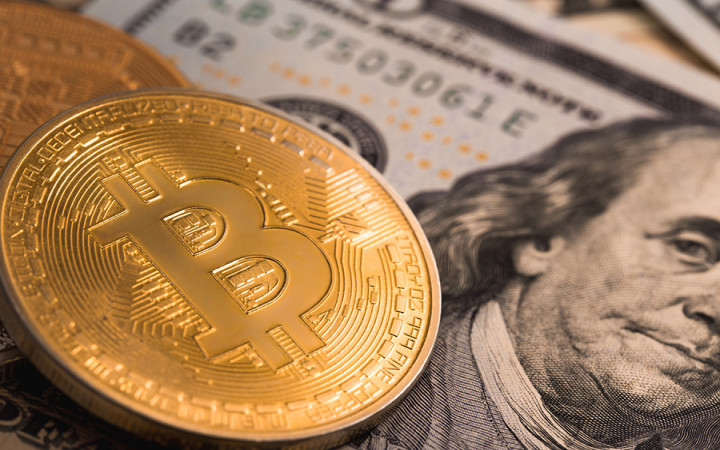Today’s Wonder of the Day was inspired by Maria. Maria Wonders, “Is bitcoin real?” Thanks for WONDERing with us, Maria!
What comes to mind when you think of money? Some might envision the humble dollar bill. Others might hear the clink of pennies and other coins filling a piggy bank.
In today's modern, electronic world, however, much of the time our money only exists as numbers on a screen. Your paycheck can be direct deposited into your bank account.
You can then spend that money online or pay bills electronically. Unless you go to a bank or use a debit card to request paper money, your money will remain purely digital.
Even though it remains in a virtual, digital realm, your money is still based upon currency issued by a government. It's also controlled and regulated by large financial institutions, such as banks.
But what if a system of money could be created that existed apart from any government and didn't involve any financial institution? That was the thought that led to the creation of Bitcoin.
Bitcoin is a cryptocurrency (sometimes called virtual currency or digital currency). It's a new type of money that's totally virtual. It's stored in a "digital wallet" application on computers and smartphones.
Instead of upon governments and financial institutions to create and manage it, Bitcoin relies upon a vast, decentralized network of computers used by individuals or groups (known as "miners") to validate and keep track of transactions using cryptography and advanced mathematics.
The worldwide financial crisis of 2008 prompted the invention of Bitcoin by Satoshi Nakamoto. No one knows who Nakamoto is, but many people suspect it's a pseudonym used by a group of programmers who created the fundamental technology underlying Bitcoin: the blockchain.
The blockchain is like a publicly-distributed ledger. It's an ever-expanding computer file that contains the history of the creation of every Bitcoin in existence, as well as every Bitcoin transaction ever conducted.
As Bitcoins are created and transactions take place, they are made part of a collection of data known as a block. When a block is filled, it is added to the chain of blocks in sequential order after it has been validated by miners in the Bitcoin network.
Miners possess specialized computer equipment capable of performing the advanced mathematics and cryptography required to validate Bitcoin transactions. They compete to be the first to validate new blocks, because the winning miners are issued newly-created Bitcoins for their efforts. This is how new Bitcoins are created.
As new blocks are added, the blockchain is updated and relayed to all the computers (called nodes) in the Bitcoin network. This makes Bitcoin very secure, since hackers would have to break into nearly all nodes simultaneously to steal Bitcoins. Most experts consider this an impossible task.
When Bitcoin began, each Bitcoin was worth almost nothing. A lot has changed in the last decade. In 2017, Bitcoin hit an all-time high value of $19,783. The cryptocurrency is extremely volatile, though.
Its value quickly decreased to less than half its peak and continues to fluctuate wildly based upon numerous factors, including the fact that many countries are attempting to regulate or ban cryptocurrencies altogether.
However, Bitcoin might not suffer from devaluation in the future the way government-issued currency often does. When central governments print more money, the value of current money decreases.
To prevent this problem, Bitcoin was designed in a way that limits the total number of Bitcoins that will ever be issued to 21 million. Experts estimate the last Bitcoin will be mined in May 2140.
How do you get Bitcoins today? You can buy them with government-issued money. You can also sell things and ask people to pay you with Bitcoins. Finally, you can become a miner, although it's difficult and expensive to acquire the technology needed to mine Bitcoins.
More and more online stores are accepting Bitcoin as payment. You may never be able to pay your taxes with Bitcoin, however. Nevertheless, many people still find Bitcoin attractive because it's not controlled by governments or banks and it allows transactions to be completely anonymous (as long as you don't give out your Bitcoin wallet identification code!).




